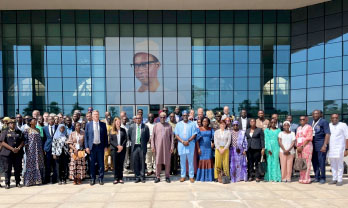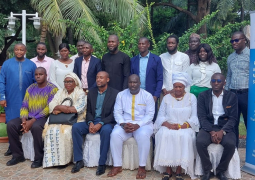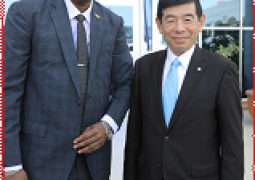
The conference, which brought together experts, academia, donors, policymakers, researchers and other stakeholders from across the west African region and beyond, aimed to assess the progress and challenges of integrating climate services into risk reduction strategies.
The meeting specifically brought together key stakeholders to align climate resilience strategies for West Africa, review funding needs, and foster long-term partnerships for climate risk management.
Discussions focused on enhancing climate resilience in West Africa, a region that is increasingly vulnerable to climate change impacts such as floods, droughts, and desertification.
In his opening address, Professor Emmanuel Ramde, executive director of WASCA, emphasised the critical importance of the need for collaboration among stakeholders to ensure effective adaptation strategies.
“Our role here should be a united voice that reaches the corridors of the world with action, partnership and accountability,” he said. “We must leave here with clear and actionable goals.”
For his part, the deputy director of Science for IRD who spoke on behalf of the director for Science of IRD, reminded the gathering of the effects of climate change on communities in west African region saying, “these challenges underscore the importance of collective resilience, one of the core objectives that brought us together here today.”
Meanwhile, the vice president of The Gambia H.E. Muhammed B.S. Jallow began his speech by paying tributes to the first President Sir Dawda Kairaba Jawara for his role in environmental advocacy including his role of championing the environmental framework, Banjul Declaration 1977.
“This initiative is line with the government of the Gambia’s Recovery Focus National Development Plan 2023-2027 which has given prominence to environment and climate change,” VP Jallow said.
The Gambian No.2 said the government is making efforts to mitigate the impacts of climate change on the vulnerable people and communities in the country.
VP Jallow also urged the stakeholders to legitimise the research, innovation and capacity building priorities invested.
Various speakers used the occasion to call for continued regional cooperation to tackle the pressing climate risks facing West Africa and to promote sustainable development practices across the region.
The conference would guide future regional policies and programmes aimed at strengthening climate resilience in West Africa.
Read Other Articles In Headlines



